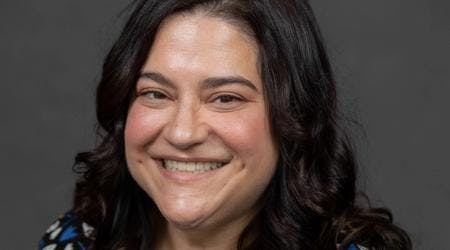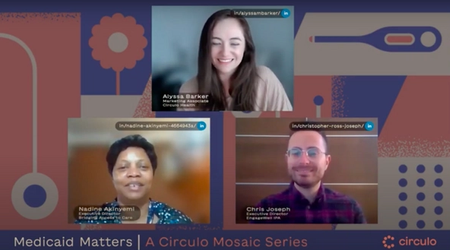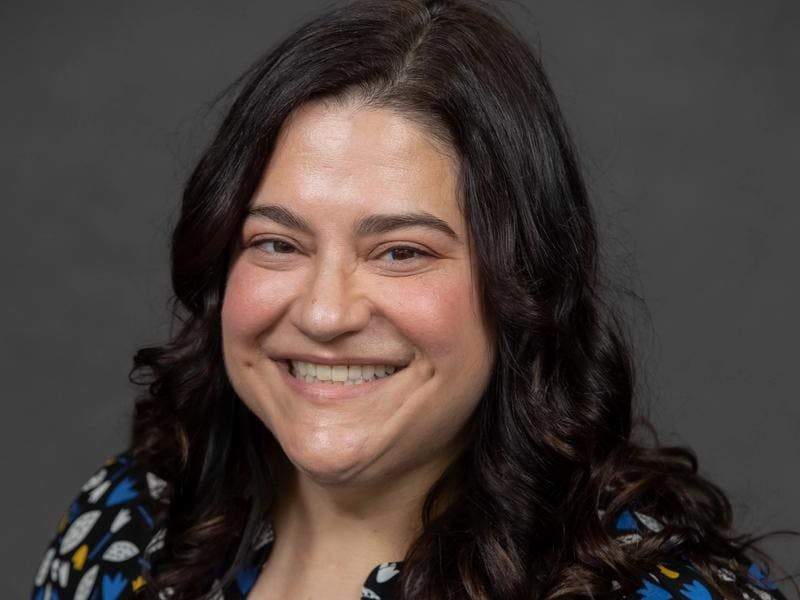
We are pleased to introduce Jennifer (Jenna) Tine as BAC's new Chief Program Officer.
Jenna is a Licensed Clinical Social Worker (LCSW) and brings a wealth of experience to BAC, particularly in behavioral health and supportive housing programs. As a member of the Executive Team, Jenna will work closely with staff and the Board to provide strategic and operational leadership.
Jenna was most recently the Vice President of Behavioral Health Housing at Services for the Underserved (SUS), overseeing 60+ supportive housing programs serving multiple populations across New York City.
Learn more about Jenna's story below.
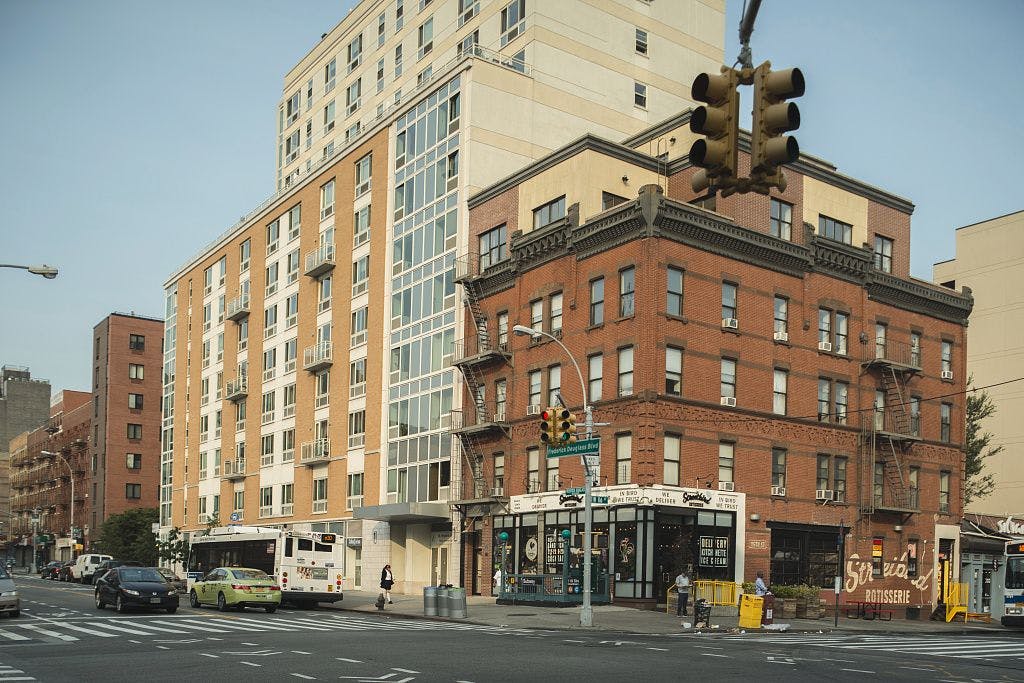
Let’s go back to the beginning of your career. What first inspired you to get into the healthcare field?
I went to Boston College, which is a Jesuit school. In my senior year, I joined a volunteer program called the Jesuit Volunteer Corps (JVC). One of the things about JVC is that you live in a community, and you live by four values: social justice, simple lifestyle, spirituality, and community.
I was placed to work at the AIDS Legal Network at the Hartford Legal Aid Office because I was thinking of going to law school and really wanted to see what it was like to work in a law firm.
I absolutely loved my interactions with the folks that I was serving. I worked with people who were living with HIV and AIDS and sometimes dying from AIDS on their civil issues. During my first week on the job, my boss brought me to a visit at the hospital with a woman who only had two T-cells. It was eye-opening for me. I was also introduced to the concept of harm reduction.
In my community, I lived with four other girls who were all working at other nonprofits, and my roommate Kelly was working at what used to be called a “wet shelter.” It basically meant you didn't need to be sober to go, and they allowed the injection drug users to use the backyard, which is literally the concept of a safer injection facility or a safe consumption site that is utilized these days.
I hated the lawyer part, though.
After I finished JVC, I went back to Boston and worked at the AIDS Action Committee as the assistant program director for the BUDDY program. That was a program where we matched volunteers with people who were living with AIDS because there was still so much stigma, and people were isolated.
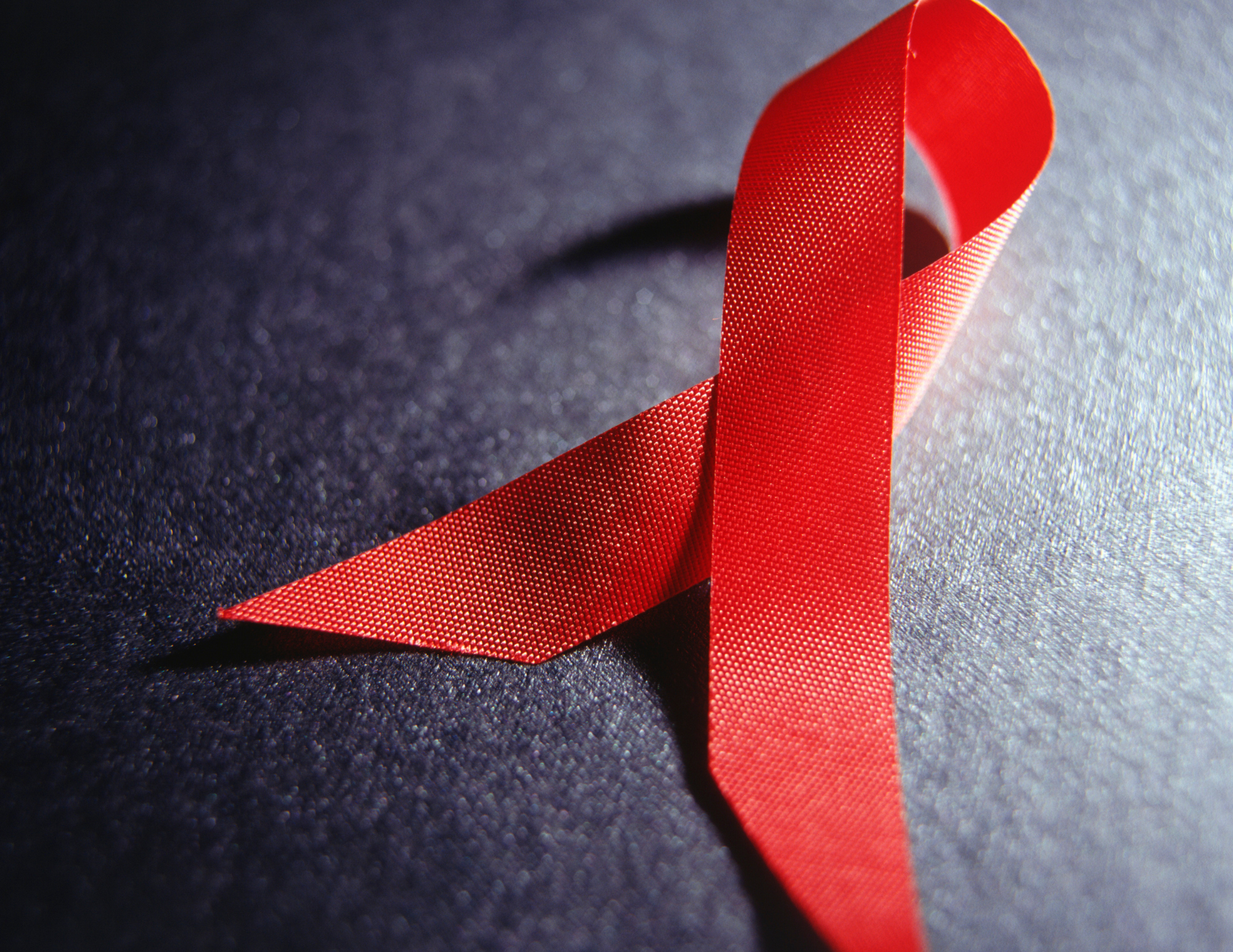
How did this lead you to be in the behavioral health and social services field specifically?
During my time at the AIDS Action Committee, I met more harm reductionists. I was doing some underground syringe exchange with some organizations because most of the syringe exchange programs were in Boston and the surrounding areas. I realized that harm reduction is what I wanted to do. I wanted to work with substance users.
So, I applied to Columbia, and thankfully, I got in and graduated in 2004. My first-year placement was at a counseling center. My second-year placement was with the ACT team at Pathways to Housing, which I absolutely fell in love with. That was my first job. I stayed there for five years. I tell people, if I could be 26 and walk 40 flights a day and make $40,000 a year forever, I would've never left the ACT team. That's really how I got into mental health.
Where did you go after leaving the ACT Team?
From there, I've worked in a hospital. I ran a program for homeless L-G-B-T-Q-A Youth in the Village for 10 years. That program was one of the greatest career experiences I've ever had because it was completely privately funded. I was the program director for nine of the 10 years I was there, and I could do and create whatever I wanted. We made it an incredibly low threshold. That's really the winding road that got me specifically into mental health.
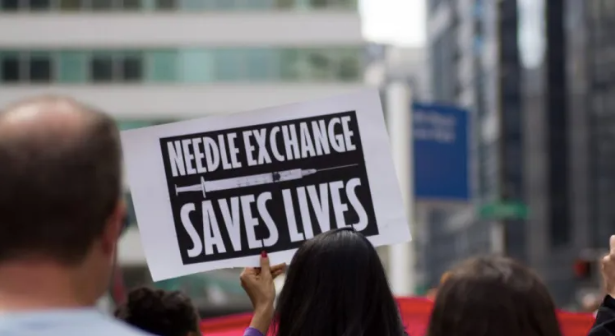
It's so interesting that you went from a place that was law-based, which is so logical and so by-the-book, to a place where you had to literally use mostly your empathy to guide you. How has the growth you've had in your career since then changed any of your original perspectives?
I think a good social worker is a social worker who recognizes that they're constantly learning. My harm reduction sort of core has remained the same. What has changed for me is as I've grown up, I've read more and seen more. I'm coming to do good. I'm an agent of the state. I am paid for; my programs are paid for from an optimist view because lawmakers and society care about the folks that we serve from a pessimist view.
At the beginning of my career, I was more on the optimist side. I'm more on the pessimistic side now, but that's not necessarily a bad thing because I think looking at things through a racial equity lens is incredibly important. I think that my license certainly plays a part in that, but there are other sorts of intersectional ties that also play a part in my power and authority.
What we're trying to do is recognize it so that we don't wield it as a weapon. I don't ever want anybody to come into our services and be re-traumatized. I'd love not to ask everybody about their traumatic histories in the first three sessions that we meet them, but we've got a neoliberal policy that's like you have to show that these people are worthy of help.

It makes it seem like the Trauma Olympics.
It really is. I want to do everything I can to decolonize myself and not have that kind of mentality, and the way I work with staff is the same way. They're experts in their jobs, and I need them to really work with me so that I can best support them. That’s a parallel process. I want them to recognize that the folks we serve are the experts in their own lives. They know what they want or don’t want. They may not know how to get there, and they may not have the resources or the support to do so. That's where we come in, and that's the only place we come in, and all that work happens through the relationship.
I spend a lot of time thinking about how fast everything has gotten. We didn't use technology like this before, so we had a much slower pace. But now it's so easy for people to be like, “Let's throw a meeting on the calendar.” That stress and that relentless pace prevents staff from being able to look through a trauma-informed lens.
The agency itself is a microcosm of the city. The agency has to be healthy, but for the agency to be healthy, the staff needs to be healthy. So that's where I see my role – Where do I come in? How can I change things, support things, and make people feel like they can come in and do their job well?
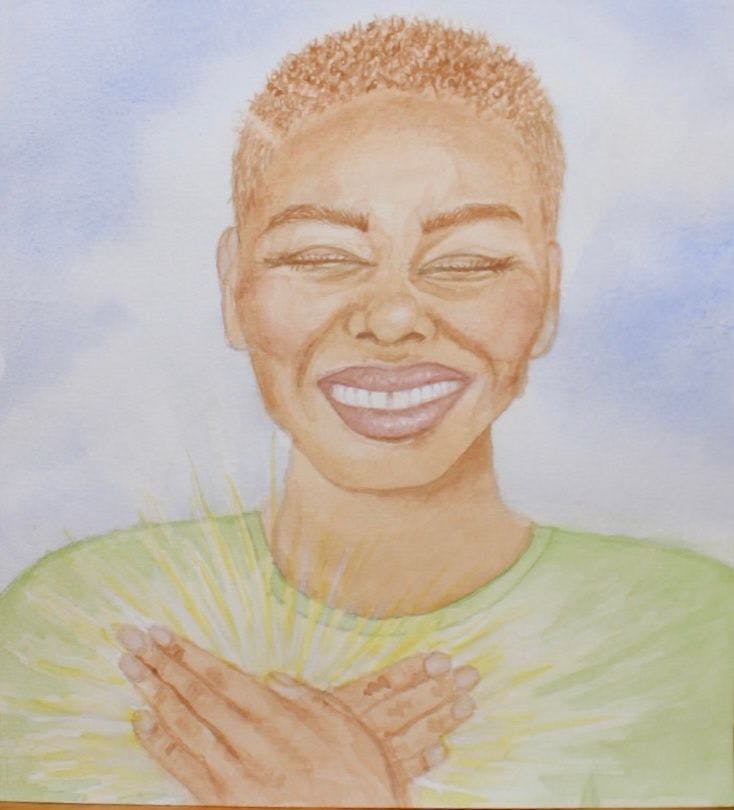
I love that. Looking back on everything you've accomplished so far, what is your proudest accomplishment, and what would you say are some of the biggest challenges that you've faced?
I have so many accomplishments that I'm proud of. I feel I had the greatest impact on the program I ran for the homeless LGBT kids, which is interesting because that was only once a week on Saturdays for four hours. But since we were able to meet their needs without restriction, it felt super impactful. The kids and the young adults still remember me. So, keeping that going with private funding for 10 years was probably my greatest accomplishment.
I used to live on 116th Street between Frederick Douglas and Manhattan, and there were many, many, many unhoused individuals in my neighborhood. I made friends with most of them and was introduced to this one person whose street name was Jesus. He lived on 59th or 58th and 8th Avenue and would purchase his substances on 116th St. because, historically, 116th St. was the biggest open-air drug market in the city.
I walked by Jesus every morning, and I would say “hi”, and we started to talk. Then, one day, he was brought into the ER of the hospital where I worked. I talked to him many times, and I basically told the doctor that he didn't need to stay here. After that, he was like, “Oh, this girl's okay.”
But then I started working at The Bridge, and COVID hit. One night, I was out on my porch and saw him, and I was like, “Hey, did you get your stimulus check?” And he was like,” I can't get it because I'm homeless.” I helped him to get his stimulus check, but he was convinced that even if we got the check, it wouldn't be able to be cashed. And I was like, “We're going to cash it. We're going to go to the Chase right there!”
I helped him use that to purchase a plane ticket and get on a plane without an ID to see his family, who he hadn't seen in 20 years. After that, he enrolled in my clinic, and later, he enrolled in the PROS program. I got him an apartment when I moved to SUS from The Bridge. He's now working at Madison Square Garden and is a part-time union member who has not used crack in a very long time.
That’s so amazing. I absolutely love that story!
So that's one of my proudest accomplishments, too. It’s a personal thing because I used every agency I was tied with to get him what he needed, and the relationship developed over literally 20 years. When I think about all the work and time and how I had to be available to him, the system is not set up to provide that to those folks to actually get them off.
I tell my staff, “You're going to plant a seed that, in 10 years, someone else might pluck the flower from. If you came here to pluck, this is not the job for you. We're seed planters.” That's what we are to do.
Our stories
